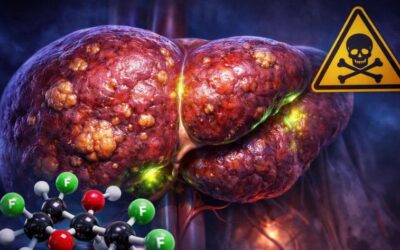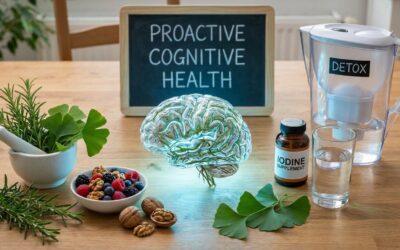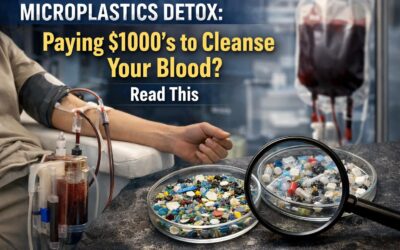It’s not just about what teens are eating—it’s about what they’re missing. Behind the shiny packaging and crave-worthy flavors of ultra-processed foods lies a growing health crisis. New research is sounding the alarm: teenagers who rely on ultra-processed foods are showing significantly lower muscle mass than those who stick to whole, nutrient-rich meals.
The difference between ultra-processed foods and whole, minimally processed foods is crucial—ultra-processed foods are stripped of essential nutrients and loaded with additives, while whole foods provide the nutrition teens need for healthy growth.
And we’re not just talking about looking toned. Muscle mass is critical for metabolism, energy, immunity, and long-term health. A diet high in fake ingredients, preservatives, and refined sugars doesn’t just rob teens of nutrients—it sets the stage for obesity, type 2 diabetes, heart disease, and even early signs of sarcopenia, the muscle-wasting condition typically seen in older adults.
Ultra-processed foods aren’t just processed—they’re engineered. Designed for convenience and taste at the expense of real nutrition, they’re packed with synthetic additives and stripped of the protein, minerals, and vitamins growing bodies desperately need.
Ultra-Processed Foods & Muscle Loss: A Dangerous Connection

A growing body of research has linked ultra-processed food consumption to a wide range of health issues, including:
Muscle mass reduction, increasing the risk of weakness, poor posture, and metabolic disorders
Obesity and Type 2 diabetes, due to the high sugar and unhealthy fat content in these foods
Cardiovascular diseases, caused by chronic inflammation and poor metabolic function
Increased fat buildup inside muscles, which reduces muscle efficiency and increases the risk of injury
Ultra-processed foods often contain substances such as preservatives, flavorings, and other additives that can negatively impact health. If you or your teen are eating ultra processed foods, you’re not just consuming “empty calories”—you’re actively reducing muscle quality and metabolic health. These foods are often eaten in large amounts, which further increases health risks.
How Ultra-Processed Foods (UPFs) Impact Muscle Mass
1. Lack of Essential Amino Acids = Poor Muscle Growth
Muscles need high-quality protein to repair and grow, but UPFs are severely deficient in essential amino acids.
Without these building blocks, muscle synthesis slows down
Muscles shrink over time, leading to weakness, fatigue, and poor posture
2. Excess Linoleic Acid Disrupts Mitochondrial Function
UPFs are packed with linoleic acid, a highly processed omega-6 fat that:
- Disrupts mitochondrial function, lowering cellular energy
- Interferes with insulin signaling, increasing the risk of metabolic disorders
- Promotes chronic inflammation, worsening muscle degradation
3. Increased Fat Storage in Muscles
Studies show that higher UPF intake leads to increased fat deposits inside muscle fibers, which:
Reduces muscle strength and endurance
Leads to slower muscle recovery and increased injury risk
4. Nutrient Deficiencies Slow Down Metabolism
UPFs are low in B vitamins, magnesium, and zinc—all of which are critical for muscle growth, energy production, and recovery.
- Without these nutrients, muscle function declines
- Teens experience lower energy levels, brain fog, and slower metabolism
5. UPFs Interfere with Hormonal Balance
Teenagers go through rapid hormonal changes, and diet plays a huge role in maintaining balance. UPFs disrupt:
Testosterone & growth hormone production, leading to weaker muscles
Insulin sensitivity, making it harder to burn fat and build lean muscle
How Teens Can Build and Protect Muscle
The damage caused by ultra-processed foods (UPFs) is not irreversible. By making intentional dietary choices, optimizing movement, and replenishing essential nutrients, you can rebuild muscle, improve metabolic function, and enhance overall strength and endurance.
Teens should aim to choose minimally processed foods that are as close to their natural state as possible, such as whole grains, fresh vegetables, and certain dairy products. Considering other foods that are less processed can also support better muscle health. Canned vegetables are a common example of minimally processed foods that still resemble whole foods; however, it’s important to read labels for sodium and additives.
Eliminating Ultra Processed Foods (UPFs)
The first and most crucial step in protecting and rebuilding muscle is cutting out UPFs entirely.
UPF’s are void of essential nutrients, packed with inflammatory ingredients, and contribute to muscle wasting, fat accumulation, and metabolic disorders.
Packaging and processing methods used for these foods can extend shelf life but often reduce freshness and nutritional value. Always check food labels for added salt, added sugars, hydrogenated oils, and other additives that can negatively impact your health.
Foods to stop eating in include:
Refined Carbohydrates – High-fructose corn syrup, white bread, processed cereals, packaged snacks, chips, and potato chips spike blood sugar, triggering insulin resistance and fat storage instead of muscle growth. Many breakfast cereals contain added sugar and sometimes added fiber to enhance nutritional value, but these are not always healthy choices. Crackers are another common processed snack; opt for whole wheat crackers with minimal ingredients as a better alternative.
Industrial Seed Oils – Canola, soybean, sunflower, and corn oil increase inflammation, disrupt cellular energy production, and damage mitochondrial function—which is essential for muscle health.
Fast Foods – these are loaded with chemical preservatives, unhealthy fats, and excessive sodium, which stress the liver, impair digestion, and hinder muscle repair. Bacon and sausage are prime examples of highly processed meats that often contain nitrites and nitrates as preservatives, which are linked to health risks like colorectal cancer. These meats are altered to change their flavor, shape, and freshness, making them less healthy than minimally processed or fresh options.
Food to eat more of:
Whole, nutrient-dense foods that provide essential vitamins, minerals, and proteins necessary for muscle synthesis and recovery. Grass fed animal protein, fruit and vegetables are excellent minimally processed, fiber-rich options for snacks and meals. Pre-cut fruits can be a healthy choice when fresh is not available. Refer to the Accelerated Food Guide for optimal choices.
Whole grain and whole grain cereal are seen as better choices for breakfast and snacks compared to highly processed, sugary options, offering more fiber and nutrients. But they aren’t ideal, as they contain elements that could lower nutrient absorption of the overall diet.
Roasted nuts and yogurt are minimally processed, protein-rich snacks that support muscle health and provide convenient, nutrient-dense options.
Healthy fats like grass-fed butter, ghee, coconut oil, cold-pressed organic olive oil, and avocado oil, which support cellular health and reduce inflammation.
Properly prepared whole foods that enhance nutrient absorption and digestion, ensuring your body gets the fuel it needs to build and maintain strong muscles.
Choosing foods with fewer ingredients and those closer to their original state or unprocessed form supports a healthy diet. Reading labels helps you identify foods with less added salt, added sugars, artificial ingredients, and hydrogenated oils.
Prioritize Eating High-Quality Protein for Muscle Growth

Muscle cannot be built or maintained without adequate protein intake. Protein is the foundation for muscle repair, growth, and recovery, and not all protein sources are created equal.
Best Protein Sources for Muscle Growth
- Wild Animal Proteins – Bison, venison, elk, lamb, and wild-caught fish are rich in bioavailable amino acids, omega-3s, and B vitamins that enhance muscle strength and recovery. The freshness of animal protein is important—minimally processed meats, unlike hot dogs, salami, or meats containing add flavors and preservatives, retain more nutrients and flavor compared to heavily processed options. I recommend Force of Nature for wild protein sources.
- Pasture-Raised Eggs – Provide complete proteins, healthy fats, and essential choline, which support muscle function, brain health, and metabolic efficiency.
- Collagen-Rich Proteins – Boost connective tissue repair, support joint health, and enhance gut integrity, all of which are essential for sustained muscle performance.
- Wild Animal Proteins – Bison, venison, elk, lamb, and wild-caught fish are rich in bioavailable amino acids, omega-3s, and B vitamins that enhance muscle strength and recovery. The freshness of animal protein is important—minimally processed meats, unlike hot dogs, salami, or meats containing add flavors and preservatives, retain more nutrients and flavor compared to heavily processed options. I recommend Force of Nature for wild protein sources.
Some processed meats are altered to change their flavor and shelf life, making them less healthy choices with added preservatives and loss of freshness.
Aim for at least 1 gram of protein per pound of ideal body weight. If you are training intensely or recovering from muscle loss, increase protein intake to 1.0–1.2 grams per pound of body weight. More information can be found in my Ultimate Protein Guide.
Optimize Daily Movement & Strength Training
Muscle growth isn’t just about diet—movement is essential. Resistance training stimulates muscle fibers, improves metabolic function, and prevents muscle atrophy in teenagers during this pivotal time.
The best exercices for muscle-building include:
Resistance Training – Weightlifting, bodyweight exercises, and resistance bands help stimulate muscle synthesis and strength.
Walking & Low-Impact Movement – Walking improves insulin sensitivity, supports fat metabolism, and enhances circulation, all of which are crucial for muscle recovery.
Stretching for Recovery – Recovery is just as important as training. Active recovery, stretching, and quality sleep help prevent injury and optimize muscle regeneration.
Pro Tip: To maximize muscle growth, combine protein-rich meals with strength training, and allow 48 hours of recovery between muscle group workouts.
After exercise, most people benefit from eating fewer ultra processed foods and more whole animal protein sources to support muscle recovery and overall health.
Targeted Supplements for Teen Muscle Growth
1. Accelerated Aminos™ for Peak Performance, Strength, and Focus
Teenagers are in one of the most critical phases of physical development. Their muscles, brain, and metabolism are rapidly evolving, and proper nutrition is essential to maximize strength, endurance, and cognitive performance. Unfortunately, many teens today struggle with low energy, muscle fatigue, and difficulty recovering from workouts—often due to diets high in ultra-processed foods and nutrient deficiencies.
Accelerated Aminos™ is not just another amino acid supplement—it’s a comprehensive muscle, brain, and energy-boosting formula designed to help support teenagers in building lean muscle, recover faster, stay mentally sharp, and maintain lasting energy throughout the day. With a unique combination of essential amino acids and cutting-edge ingredients, it support fuel peak performance for school, sports, and an active lifestyle.
Unlike other amino acid supplements, Accelerated Aminos™ contains next-level ingredients that don’t just support muscle growth but also:
- Enhance brain function and mental focus using supplements
- Improve endurance and energy production
- Strengthen the immune system and gut health
- Reduce muscle soreness and speed up recovery
- Support a lean, athletic physique by optimizing fat metabolism
Teens are at a stage of rapid muscle development, brain growth, and metabolic changes. What they eat and supplement with today will impact their strength, energy, and focus for years to come.
With Accelerated Aminos™, they can build muscle, recover faster, stay energized, and stay sharp—all without the harmful effects of ultra-processed foods.
2. Acceleradine® Iodine: The Missing Link for Muscle Growth & Energy
Many people overlook iodine’s role in muscle growth, but this essential mineral is crucial for protein synthesis, energy production, and overall metabolic health. Teenagers need iodine more than any other age group due to their rapid growth.
How Acceleradine® Iodine Helps with Muscle Growth & Metabolism:
Boosts Muscle Protein Synthesis –Iodine supports thyroid hormones, which regulate protein metabolism and help build lean muscle mass.
Enhances Energy Production –Iodine increases mitochondrial efficiency, allowing cells to produce more ATP (energy)—essential for muscle endurance and recovery.
Supports Fat Metabolism – A healthy thyroid, fueled by iodine, ensures calories are burned efficiently, preventing muscle loss while promoting fat burning.
Reduces Muscle Fatigue – Iodine improves oxygen utilization in muscles, helping reduce post-workout soreness and muscle fatigue.
Optimizes Brain-Muscle Connection – Iodine is essential for neuromuscular function, helping improve coordination, reflexes, and athletic performance.
Accelerated Cogniblast® : Supports the Brain-Muscle Connection
Many teenagers suffer from depression, anxiety or low levels of motivation. The combination of ingredients in Accelerated Cogniblast® may help improve motivation to make smarter diet and lifestyle choices. The ingredients in this advanced nootropic supplement have been combined to help:
- Enhanced dopamine production, improving motivation & focus for training
- Better neurotransmitter balance, which impacts muscle coordination
- Reduced brain fog and fatigue, helping maintain consistent energy levels
Want Strong Muscles? Ditch the Junk and Eat Real Food
Here’s the truth—what you put on your plate as a teen really matters. This is the window where your body is literally building its foundation, especially when it comes to muscle. And the science is loud and clear: ultra-processed foods (UPFs) are holding you back. They stall muscle growth, pack fat into your muscle tissue, and set the stage for future metabolic problems.
But there’s good news—it’s never too late to flip the script.
Start by cutting the UPFs and build your meals around real, whole foods. That means wild animal protein, fiber-rich veggies, healthy fats, and the kind of nutrients your body actually recognizes and uses. It also means being label-savvy. That store-bought “healthy” salad dressing? Probably loaded with additives. A homemade vinaigrette with olive oil, lemon, and salt is a game changer.
Let’s get practical:
Swap boxed cereal for fiber-rich oats with cinnamon and berries.
Ditch sugary drinks and stick to filtered water, or choose juices and natural fruit juice in moderation as better drink options.
Say no to fake snacks. Reach for hard-boiled eggs, beef jerky, or nuts instead.
Avoid alcohol completely. Not only is it ultra-processed, but it also sabotages muscle growth, liver health, and hormones—especially dangerous for growing bodies.
Ultra-processed foods are often altered in texture to make them more appealing, but this processing can reduce their nutritional value.
The bottom line? If it comes in a box, bag, or bottle with a list of unpronounceable ingredients, your body likely doesn’t want it. Stick to foods that look like they did in nature. Consider other options, such as homemade snacks or minimally processed foods, instead of ultra-processed choices.
Because building strong, healthy muscle—and a healthy future—starts with one simple rule: Eat real food. A diet high in ultra-processed foods increases the risk of developing health conditions such as obesity, type 2 diabetes, and heart disease.
Sara Banta
Sara Banta is a Stanford University Graduate with a Degree in Economics and Psychology, and a certified Natural Supplement Expert & Graduate of the Institute for Integrative Nutrition. Sara is the Founder of Accelerated Health Products and host of the health & wellness podcast, Accelerated Health Radio.
- Sara Banta
- Sara Banta
- Sara Banta
- Sara Banta
- Sara Banta
- Sara Banta
- Sara Banta
- Sara Banta
- Sara Banta
- Sara Banta
- Sara Banta
- Sara Banta
- Sara Banta
- Sara Banta
- Sara Banta
- Sara Banta
- Sara Banta
- Sara Banta
- Sara Banta
- Sara Banta
- Sara Banta
- Sara Banta
- Sara Banta
- Sara Banta
- Sara Banta
- Sara Banta
- Sara Banta
- Sara Banta
- Sara Banta
- Sara Banta
- Sara Banta
- Sara Banta
- Sara Banta
- Sara Banta
- Sara Banta
- Sara Banta
- Sara Banta
- Sara Banta
- Sara Banta
- Sara Banta
- Sara Banta
- Sara Banta
- Sara Banta
- Sara Banta
- Sara Banta
- Sara Banta
- Sara Banta
- Sara Banta
- Sara Banta
- Sara Banta
- Sara Banta
- Sara Banta
- Sara Banta
- Sara Banta
- Sara Banta
- Sara Banta
- Sara Banta
- Sara Banta
- Sara Banta
- Sara Banta
- Sara Banta
- Sara Banta
- Sara Banta
- Sara Banta
- Sara Banta
- Sara Banta
- Sara Banta
- Sara Banta
- Sara Banta
- Sara Banta
- Sara Banta
- Sara Banta
- Sara Banta
- Sara Banta
- Sara Banta
- Sara Banta
- Sara Banta
- Sara Banta
- Sara Banta
- Sara Banta
- Sara Banta
- Sara Banta
- Sara Banta
- Sara Banta
- Sara Banta
- Sara Banta
- Sara Banta
- Sara Banta
- Sara Banta
- Sara Banta
- Sara Banta
- Sara Banta
- Sara Banta
- Sara Banta
- Sara Banta
- Sara Banta
- Sara Banta
- Sara Banta
- Sara Banta
- Sara Banta
- Sara Banta
- Sara Banta
- Sara Banta
- Sara Banta
- Sara Banta
- Sara Banta
- Sara Banta
- Sara Banta
- Sara Banta
- Sara Banta
- Sara Banta
- Sara Banta
- Sara Banta
- Sara Banta
- Sara Banta
- Sara Banta
- Sara Banta
- Sara Banta
- Sara Banta
- Sara Banta
- Sara Banta
- Sara Banta
- Sara Banta
- Sara Banta
- Sara Banta
- Sara Banta
- Sara Banta
- Sara Banta
- Sara Banta
- Sara Banta
- Sara Banta
- Sara Banta
- Sara Banta
- Sara Banta
- Sara Banta
- Sara Banta
- Sara Banta
- Sara Banta
- Sara Banta
- Sara Banta
- Sara Banta
- Sara Banta
- Sara Banta
- Sara Banta
- Sara Banta
- Sara Banta
- Sara Banta
- Sara Banta
- Sara Banta
- Sara Banta
- Sara Banta
- Sara Banta
- Sara Banta
- Sara Banta
- Sara Banta
- Sara Banta
- Sara Banta
- Sara Banta
- Sara Banta
- Sara Banta
- Sara Banta
- Sara Banta
- Sara Banta
- Sara Banta
- Sara Banta
- Sara Banta
- Sara Banta
- Sara Banta
- Sara Banta
- Sara Banta
- Sara Banta
- Sara Banta
- Sara Banta
- Sara Banta
- Sara Banta
- Sara Banta
- Sara Banta
- Sara Banta
- Sara Banta
- Sara Banta
- Sara Banta
- Sara Banta
- Sara Banta
- Sara Banta
- Sara Banta
- Sara Banta
- Sara Banta
- Sara Banta
- Sara Banta
- Sara Banta
- Sara Banta
- Sara Banta
- Sara Banta
- Sara Banta
- Sara Banta
- Sara Banta
- Sara Banta
- Sara Banta
- Sara Banta
- Sara Banta
- Sara Banta
- Sara Banta
- Sara Banta
- Sara Banta
- Sara Banta
- Sara Banta
- Sara Banta
- Sara Banta
- Sara Banta
- Sara Banta
- Sara Banta
- Sara Banta
- Sara Banta
- Sara Banta
- Sara Banta
- Sara Banta
- Sara Banta
- Sara Banta
- Sara Banta









